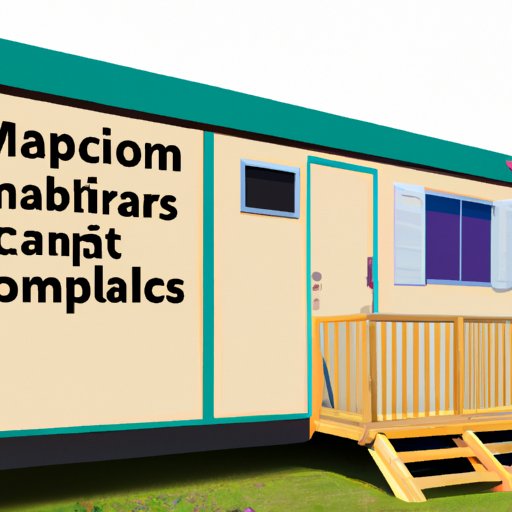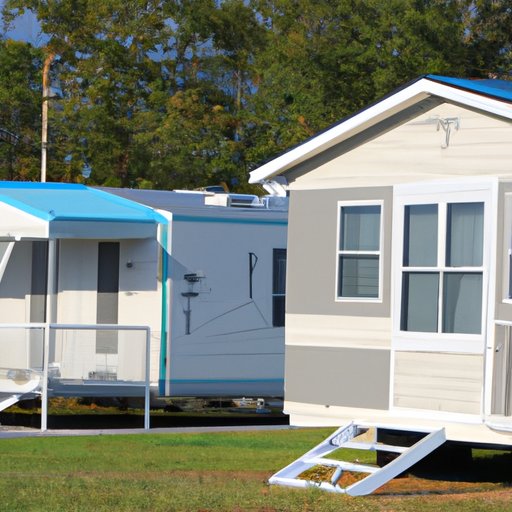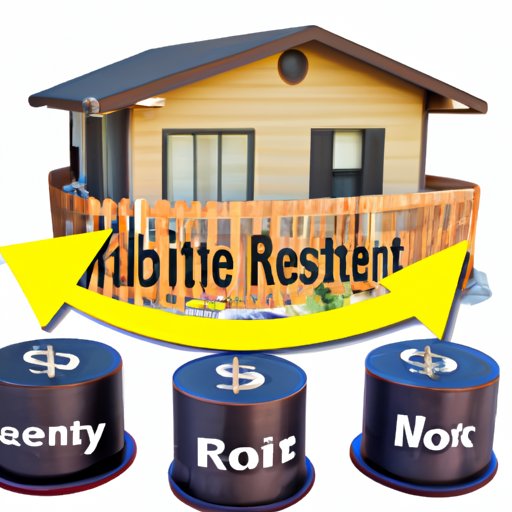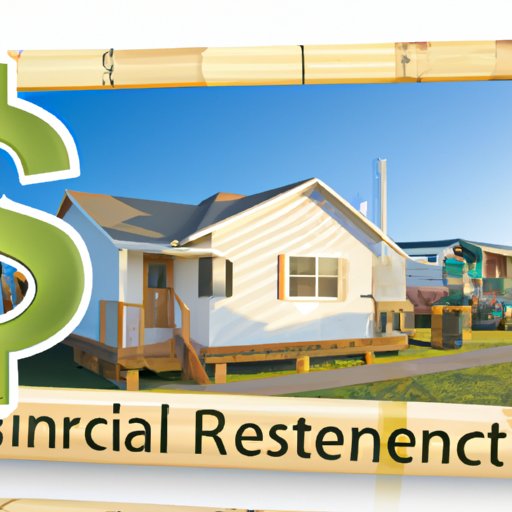Introduction
Manufactured homes have become increasingly popular over the last few decades, offering an affordable housing option for those unable or unwilling to purchase a traditional single-family home. But is investing in a manufactured home a good idea? To answer this question, it’s important to look at both the advantages and disadvantages of such an investment.
Definition of a Manufactured Home
A manufactured home is a dwelling constructed in a factory and transported in one or more sections to its final destination. Manufactured homes are typically cheaper than traditional single-family homes, making them an attractive option for first-time homebuyers or those on a tight budget. They are also often located in mobile home parks, where lot rent is generally lower than in other residential areas.
Overview of the Pros and Cons of Investing in a Manufactured Home
When considering whether to invest in a manufactured home, it’s important to weigh the potential benefits and drawbacks. On the plus side, manufactured homes offer low upfront costs, low maintenance costs, and flexibility of location. However, there are some potential risks as well, including difficulty securing financing, limited resale value, and quality issues.
Financial and Lifestyle Benefits of Manufactured Home Ownership
The primary benefit of owning a manufactured home is that the upfront cost is significantly lower than that of a traditional single-family home. In addition, manufactured homes are typically much easier to maintain than traditional homes, resulting in lower maintenance costs. Finally, manufactured homes can be moved to different locations if necessary, giving owners greater flexibility when it comes to their living arrangements.

Potential Risks of Investing in a Manufactured Home
Despite the financial and lifestyle benefits of manufactured home ownership, there are some potential downsides to consider as well. One of the biggest obstacles for potential buyers is securing financing, as many lenders are reluctant to loan money for manufactured homes due to their lower resale values. Additionally, manufactured homes may not appreciate in value as quickly as traditional homes, meaning the return on investment may be lower. Finally, quality can be an issue with manufactured homes, as construction standards vary widely from one manufacturer to another.

Cost Comparison of Manufactured Homes to Other Investment Options
It’s also important to compare the cost of a manufactured home to other investment options. Residential real estate is typically more expensive than manufactured homes, while commercial real estate is more expensive still. Stocks and bonds, meanwhile, provide more liquidity than real estate investments but often come with higher risk.

Durability and Resale Value of Manufactured Homes
The durability and resale value of manufactured homes depend largely on the building materials used and the length of time they stay on the market. Generally speaking, the better the materials used, the longer the home will last and the higher the resale value. Local market conditions can also have an impact on the resale value of manufactured homes.
Quality of Manufactured Homes and Their Impact on Neighborhoods
The quality of manufactured homes can have a significant impact on the overall value of a neighborhood. Poorly constructed homes may suffer from structural issues or lack of energy efficiency, leading to lower property values. It’s therefore important to research the construction standards and design considerations of any potential manufactured home before investing.

Return on Investment of Buying a Manufactured Home
When determining whether buying a manufactured home is a good investment, it’s important to calculate the return on investment (ROI). The ROI will depend on factors such as the purchase price, maintenance costs, and the length of time the home stays on the market. It’s also important to assess the risk vs. reward of such an investment.
Conclusion
In conclusion, investing in a manufactured home can be a great option for those looking for an affordable housing solution. However, there are some potential risks to consider as well, including difficulty securing financing, limited resale value, and quality issues. It’s important to compare the cost of a manufactured home to other investment options and assess the risk vs. reward before making a decision.
(Note: Is this article not meeting your expectations? Do you have knowledge or insights to share? Unlock new opportunities and expand your reach by joining our authors team. Click Registration to join us and share your expertise with our readers.)
